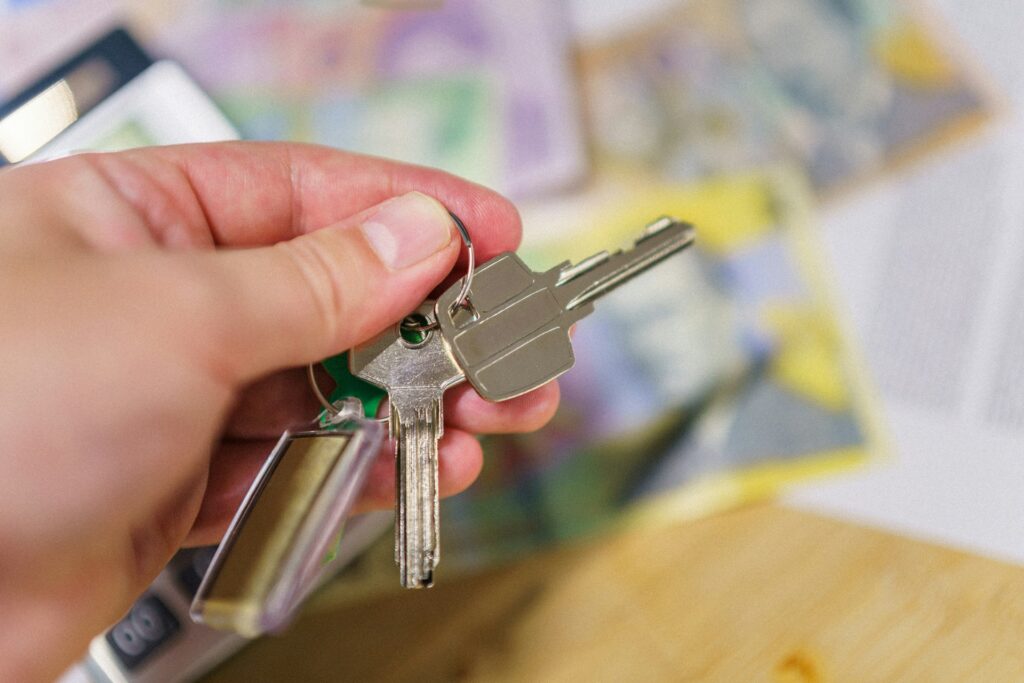Did you know that Portugal’s rental market is one of the fastest-growing in the world, with rental prices rising since the start of the year?
As the market is yet to be saturated, now is your chance to capitalize on these positive stats. This means that if you are looking to renting out your property in Portugal, we’re here to guide you through it and how to do so without falling into any legal pitfalls.
Rental Market Overview: What’s the Market Like Currently?
You should be aware of the market before starting the process of renting out your property in Portugal.
Portugal is a magnet for expats seeking residence as well as visitors right now. Whether you have an apartment or a countryside property to rent in Portugal long term, the range of rental income possibilities is unlimited.
However, there are several factors to consider if you are entering the rental market here for the first time.

Demand and Growth in the Rental Market
Tourism-driven demand:
The number of tourists visiting Portugal has skyrocketed in the past few years – especially in regions like Lisbon, Porto, and the Algarve.
While these areas are filled with tourists throughout the year, it’s especially crowded during summers and festive holidays. With such a constant stream of tourists, the demand for renting out your property in Portugal to temporary visitors is high.
Expat influx:
Portugal is enticing more and more foreigners to live in the nation by providing advantageous visas including the Golden Visa (for property investors) and the D7 (for holders of passive income).
Among expats, cities like Lisbon, Porto, and coastal locations like Cascais and the Algarve are particularly sought after and drive demand for renting out your property in Portugal for extended periods.
Universities and student rentals:
Alongside tourists and settlers, students also come to Portugal due to its prestigious universities. These international students require housing, contributing to the demand for renting out your property in Portugal.
Long-term vs. Short-term Rentals
Renting out your property in Portugal requires more than just putting it on the Internet.
You need to understand the two types of rentals that people opt for in the country. Each has its own set of benefits and drawbacks. The key to successfully renting out your property in Portugal is to understand which best suits your needs.
Long-term Rentals: Pros and Cons
Generally, property to rent in Portugal long term lasts for a year or longer. These are common among expats, students, or locals looking for long-term leases. Let’s break down the pros and cons of renting out your property in Portugal for longer periods.
Pros: Why You Should Go For It?
Consistent income
One of the key benefits of long-term rentals is their consistent, consistent income flow. Once you have a lasting tenant, off-season vacancies or changes in demand won’t cause you concern.
Given a consistent monthly income, renting out your property in Portugal for a long time is a safe bet—especially for individuals wishing to create money without ongoing engagement.
Less frequent management needs
The management of the property is less of a burden when renting out your property in Portugal for longer terms. Unlike short-term rentals, you won’t have to deal with weekly turnover, continual cleaning, or guest communications.
Less trouble means more mental peace of mind.
Lower operating costs
Long-term rentals usually mean less upkeep than short-term rentals, when you have to regularly clean, resupply supplies, and maintain the property to rent in Portugal long term. You won’t have to keep the property constantly ready for several visitors.
Cons: Why You Should Avoid It?
Potentially lower income
Although long-term rental properties provide consistency, they usually produce less monthly income than short-term rentals. Should your house be in a highly sought-after tourist destination, you could be passing on more income from renting out your property in Portugal for temporary holidays.
Legal complexities
Tenant rights are rigorously safeguarded in Portugal, particularly in long-term rental scenarios. If the tenant objects to leaving, evictions can be difficult and time-consuming. Legal procedures are involved, so before renting out your property in Portugal, one should be familiar with tenant rights.
Wear and tear
Naturally, long-term renters reside on the premises full-time. This causes increasing property wear and tear over time. Unlike short-term rentals, when visitors are temporary, tenants may make more use of the property to rent in Portugal long term, thereby maybe resulting in more maintenance and repair expenses.
4. Inflexibility:
You lose the freedom to utilize your property for personal purposes after you sign a long-term lease for renting out your property in Portugal. If you intend to spend family vacations or personal stays on the property all year long, this can be a drawback.

Short-term Rentals: Pros and Cons
Usually designed for visitors, short-term rental properties last from a few nights to many weeks. Thanks to websites like Airbnb, Booking.com, and others, renting out your property in Portugal for a limited time has grown rather popular.
Pros: Why You Should Go For It?
Higher rental yields
Short-term rentals can yield far more returns than long-term rentals in prime areas, particularly in busy travel times. Property owners might charge more per night, particularly in places experiencing a lot of visitors.
Usually, renting out your property in Portugal for one week in high season generates more income than one whole month of long-term rental property.
Flexibility
Short-term rentals offers flexibility as one of its main benefits. You can choose when to utilize the property to rent in Portugal personally. Short-term rental property lets you block off times for personal use if you’re not ready to commit to year-round renting of the home.
Less risk of problematic tenants
If a guest in a short-term rental is problematic, they’re typically out the door within a few days. There’s no long-term commitment to the tenant. This would be different if you came across this situation when renting out your property in Portugal in a long-term contract.
Cons: Why You Should Avoid It?
Seasonality and income fluctuations
Short-term rental properties have their seasonality as a main drawback. Should your house be in a tourist-heavy area, you may find it challenging to draw tourists off-season and earn money from renting out your property in Portugal.
This implies that even while your summer months could be rather lucrative, you could have long stretches with very little or no rental revenue.
Higher operating costs
Short-term rentals mean you will have more regular maintenance and cleaning of the property to rent in Portugal, which raises running costs.
Every visitor changeover calls for restocking, cleaning, and occasionally little repairs. Not to mention, particularly if you’re not local, you could have to pay a property manager or cleaning agency to do these chores.
More hands-on management
Renting out your property in Portugal for short periods requires continuous maintenance.
You will have to control bookings, answer visitor correspondence, and guarantee the property is always guest-ready. This can take time; hence unless you work with a property management company, you will have continuous responsibility.
Strict local regulations
Concerns over local residents’ shortage of homes have led cities like Lisbon and Porto to tighten rules on short-term rentals in recent times. Before renting out your property in Portugal on short-term rental properties, be sure you are in compliance by first looking over the local rules.

Requirements Before Renting Out Your Property In Portugal
Before you start renting out your property in Portugal, you’ll need to be familiar with the rental conditions. Whether you choose long-term or short-term rentals, the law lays down specific requirements for property owners.
- Rental contracts: Renting out your property in Portugal requires a documented contract (Contrato de Arrendamento) for long-term rental properties. This contract should include the rental price, payment terms, etc. To avoid disagreements, both parties must sign this agreement.
- Security deposits: Many long-term landlords need a security deposit of one or two months’ rent. This deposit protects against property damage and unpaid rent. A lesser security deposit is frequently required for short-term property to cover guest damage.
- Alojamento Local (AL) License: You need an Alojamento Local (AL) license for renting out your property in Portugal for shorter periods. This license is required for Airbnb rentals, and violators face steep fines.
- Health and safety standards: For short-term rentals, your property to rent in Portugal long term must meet health and safety standards. Fire safety, ventilation, and fire extinguishers are included.
Step-by-Step Guide to Renting Out Your Property in Portugal
Step 1: Prepare your property to rent in Portugal long term
Whether your goal is long-term or temporary renters, your property needs to be in perfect shape before renting out your property in Portugal.
Make sure it’s pleasant, clean, and well-kept. In a short-term rental, think about making investments in premium furniture and conveniences such as Wi-Fi, contemporary appliances, and entertainment alternatives.
Whether your rental goals call for a busy tourist destination or a quiet area for long-term tenants, PRA can assist you in locating the ideal property.
Step 2: Prepare your documents
The landlord and renter always sign a contract when renting a property. This contract must be submitted to the Tax Authority and follow the Civil Code and New Urban Lease. Obtain your NIF (Portuguese Tax Number).
Property energy certificates are crucial for renting out your property in Portugal. If you don’t have it, request it from the ADENE (Energy Agency) to establish the property’s energy performance. You must submit the property’s floor plan, caderneta predial urbana, and technical documentation to get it.
Step 3: Set the right price
Look at the local market to get a suitable rent for your house. Should you price it too high, you might have trouble finding tenants; should you price it too cheap, you might be leaving money on the table.
While determining the price, take location, facilities, and market demand into account.
Step 4: Get the necessary licenses before renting out your property in Portugal
Remember to apply for an Alojamento Local (AL) license even if you are renting out your property in Portugal for temporary visitors. Furthermore, make sure your property follows health and safety rules to prevent any legal problems.
Step 5: List your property to rent in Portugal
Popular possibilities for short-term rentals are websites including Airbnb, Booking.com, and HomeAway. Make sure before renting out your property in Portugal you have added excellent pictures and a thorough, appealing description. For long-term rental property, think about working with local real estate companies or online property platforms.
Step 6: Sign a contract after screening
If you are renting out your property in Portugal for an extended time, you really should carefully examine candidates. Make background checks, confirm references, and make sure the possible tenant has a consistent income. You want to steer clear of handling difficult renters or delinquent rent.
Additionally, make sure both sides of long-term rentals sign a rental agreement specifying the lease conditions. This serves as your legal protection should conflicts arise while you are renting out your property in Portugal. Regarding short-term rental property, the terms and conditions of the booking system will guide you.
Step 7: On-going maintenance
Hire a property manager if you live somewhere else than Portugal or find yourself unable to manage the property. They will manage visitor contacts, check-ins, and overall property maintenance. You also have to pay taxes and record rental income if you are renting out your property in Portugal.
Legal Considerations for Property Owners
Renting out your property in Portugal involves several legal obligations.
Portuguese law is quite tenant-friendly, particularly for longer rentals. Tenants have the right to privacy, and landlords must follow legal processes before evicting someone. One should completely grasp the legal procedures involved in matters like non-payment or other conflicts. Similarly, a written contract should support all long-term rental arrangements, protecting the landlord and renter and guaranteeing legal compliance.
Evicting Portuguese tenants, particularly for long-term rental properties, can be a drawn-out process requiring court participation, usually spanning months. This emphasizes the need to carefully check renters before signing a long lease.
Conversely, for short-term rentals, an Alojamento Local (AL) license is required. Apart from license acquisition, landlords have to show the AL sign and abide by municipal noise control policies.
Taxation on Renting Out Your Property in Portugal
Now, let’s talk about taxes on your property to rent in Portugal long term.
You must notify the Portuguese tax authorities of any revenue you make from renting out your property in Portugal. The good news is that, depending on your circumstances, you might be qualified for deductions meant to reduce your tax load.
Once you have your NIF number, make sure you’re complying with the taxation regulations properly.
- Personal Income Tax (IRS): Personal income tax (Imposto sobre o Rendimento das Pessoas Singulares or IRS) taxes rental income. The rental income default tax rate is 28%. On expenses, including upkeep, repairs, and mortgage interest, however, if you use the IRS progressive rates, you can claim deductions.
- IVA (VAT): Depending on the services you offer—cleaning or meals, for example—you can be liable to Value-Added Tax (IVA) at rates of 6%, 13%, or 23%. This is only possible if you are renting out your property in Portugal temporarily. See if your short-term rental company qualifies for IVA and how it would affect your circumstances.
- Municipal Property Tax (IMI): Portuguese property owners have to pay the IMI tax yearly. Depending on the municipality the property is in, this tax rate falls between 0.3% and 0.8% of its worth.
Working with PRA will help you to maximize available deductions and guarantee that you are fulfilling all your tax requirements.
We will assist you negotiate the complexity of rental income taxation and guarantee that you are maintaining thorough records of your revenue and expenses, so reducing your tax burden and increasing your profits.
Tips for Renting Out Your Property in Portugal
To help you succeed as a landlord, here are some practical tips for renting out your property in Portugal:
- Pick the right rental type: Location matters. Short-term rentals suit tourist spots, while long-term ones offer stability.
- Furnish your property thoughtfully: Go for modern amenities for the short term and durable, comfy furniture for the long-term rental lease.
- Market smartly: Use quality photos and engaging descriptions, and highlight key features to attract tenants to your property to rent in Portugal long term.
- Manage expectations: Set clear rules for short-term guests; maintain open communication with long-term tenants.

Why Work With Us?
It can be difficult to navigate Portugal’s rental market, particularly if you’re not familiar with the laws and customs of the area.
That’s where PRA comes in!
Having years of knowledge of the Portuguese real estate industry, we provide thorough, end-to-end services to simplify renting out your property in Portugal. From legal guidance to property search, we’ve got you covered!
Ready to make the most of your property in Portugal? Contact PRA today, and let us handle the rest!
Frequently Asked Questions About Renting out your property in Portugal
How to rent out a property in Portugal?
To start renting out your property in Portugal, Make sure your home is in good shape. Choose between short-term or long-term rental property, and obtain the required licenses before renting it in Portugal. You can work with real estate counselors like PRA or post your rental home on sites like Airbnb.
What is required to rent out property in Portugal?
You will have to sign a rental contract, make sure your rental properties satisfy health and safety criteria, and report rental income to tax authorities.
How to advertise rental property?
Post your property to rent in Portugal on well-known websites as Booking.com, Idealista, or Airbnb. Emphasise the best aspects of your home using well chosen images and a strong description.
Are rental properties worth it?
Indeed, rental properties in Portugal may be quite profitable, particularly in regions with lots of visitors. While short-term rentals serve the tourism boom, long term rented properties in Portugal provide stability.
How to evict a tenant easily in Portugal?
Evicting tenants in Portugal can be a slow legal process. Ensure your rental property contracts are clear and follow legal eviction procedures. Working with a lawyer can make it easier.




